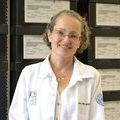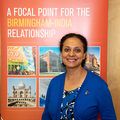Dr Simon Meagher is consultant sonologist at the Perinatal department, Mercy Hospital for Women, Melbourne. He also serves as Medical Director of Monash Ultrasound for Women where he oversees a team of 50 sonologists, sonographers, genetic counsellors, phlebotomists and administrative staff in delivering a tertiary level ultrasound service across south east Melbourne. Dr Meagher has dedicated 30 years of his term as Medical Director, teaching and lecturing in obstetric and gynaecological ultrasound both locally and overseas. He has delivered over 800 lectures, across 17 countries, and 43 cities worldwide. In 2015, he was awarded ‘Sonologist of The Year’ by the Australian society of Ultrasound in medicine (ASUM) in recognition of his teaching skills and his commitment to hands on training within the hospital setting at the Mercy Hospital for Women and for his commitment and contributions to ASUM.
His interest in clinical research has focussed on early pregnancy screening and diagnosis he has published over 100 articles in peer review journals, including 15 articles in the last 3 years focusing on first trimester pregnancy screening and diagnosis. Dr Meagher has described five original sonographic fetal markers during the first and second trimesters of pregnancy. He is now focusing his interest on aneuploidy and embryo development from seven to 10 weeks as we approach the dawn of a new era of genetic screening via free fetal DNA analysis.
Dr Meagher has taken on multiple leadership positions - early in his career as the Chair of the Standards of Practice Committee at ASUM, examiner and executive board member for the ASUM Diploma of diagnostic ultrasound and later as council member of ASUM. Thereafter he served as Chairman of the Victoria Obstetric Sonologists group and on several ISUOG Sub-Committees at the International Society of Ultrasound in Obstetric and Gynaecological Ultrasound.
Country: Australia
Field: Obstetrics and Gynaecology
Specialties: Prenatal Diagnosis. First and Second Trimester Fetal anomaly screening. Aneuploidy screening and diagnosis. NIPT and prenatal Exome sequencing. Maternal and Fetal Doppler Ultrasound. Invasive Prenatal Procedures. Ultrasound and Infertility. Tubal Patency Testing.
Languages: English
Pushing medicine to the edge
What we learn from the past: reproductive health and birthing among the Maya
Vera Tiesler, PhD., is an internationally renowned Mexican bioarchaeologist. Coming from an anthropological, archaeological and medical academic background, she studies the ancient Maya, diving into understanding their world and history through their body modifications, demography and mobility. Tiesler is staged in Mérida, Yucatán, where she works as a research professor at the Autonomous University of Yucatan. Since 2000, she is in charge of the Laboratory of Bioarchaeology, the largest institutional facility of its kind in the Maya area. After twenty years of robust and culturally informed interdisciplinary research, collaboration and partnerships, this engagement has accrued systematic skeletal documentation of 200+ archaeological sites and some 6,000 individuals across the Mesoamerican landscapes. Their joint decoding has invigorated knowledge and debate of central aspects of pre-Columbian and colonial Maya living conditions, ancient embodiment and spirituality, violence and mortuary treatments of the body. This includes novel insights on the living experiences among children and women of the past, and on dynastic life and death. Regarding physical appearance and enhancement, Tiesler’s long-term academic involvement with Maya head shaping and dental decorations has targeted enactment, shifting emblematic roles and their religious underpinnings.
Further research by Tiesler and her laboratory covers the peoples of broader Mesoamerica, Columbus’ second voyage in the Caribbean, and Central and South American populations. Tiesler has written two hundred articles and chapters for academic venues and has authored or edited twenty volumes, some of hem together with other colleagues. Noted is her research and TV coverage on the body in Maya religion, on ancestor veneration and posthumous body processing, life-ways and mobility in Mesoamerica. Additional work covers the African diaspora and the embodied identity and health among modern Maya communities.
Implementing change in cancer diagnostic pathways to improve outcomes for all
Sudha Sundar is a gynaecological cancer surgeon and a clinical academic. Her research programme focusses on improving cancer diagnostics, cancer surgery and addressing inequalities in cancer outcomes. Sudha’s research has led to change of NICE guidance to recommend maximum cytoreduction surgery for ovarian cancer. She has recently completed her term as the President of the British Gynaecological Cancer Society (2019-2022), the first women gynaecological oncologist to be elected to this post.
She is now National Ovarian Cancer audit surgical lead (2023 – to date) and is spearheading the innovative use of routinely collected data to drive outcomes for women with ovarian cancer.
She has co-chaired the International Gynaecological cancer society conference Scientific program committee in 2024 and is on the International advisory board of Lancet Oncology (2025-)




